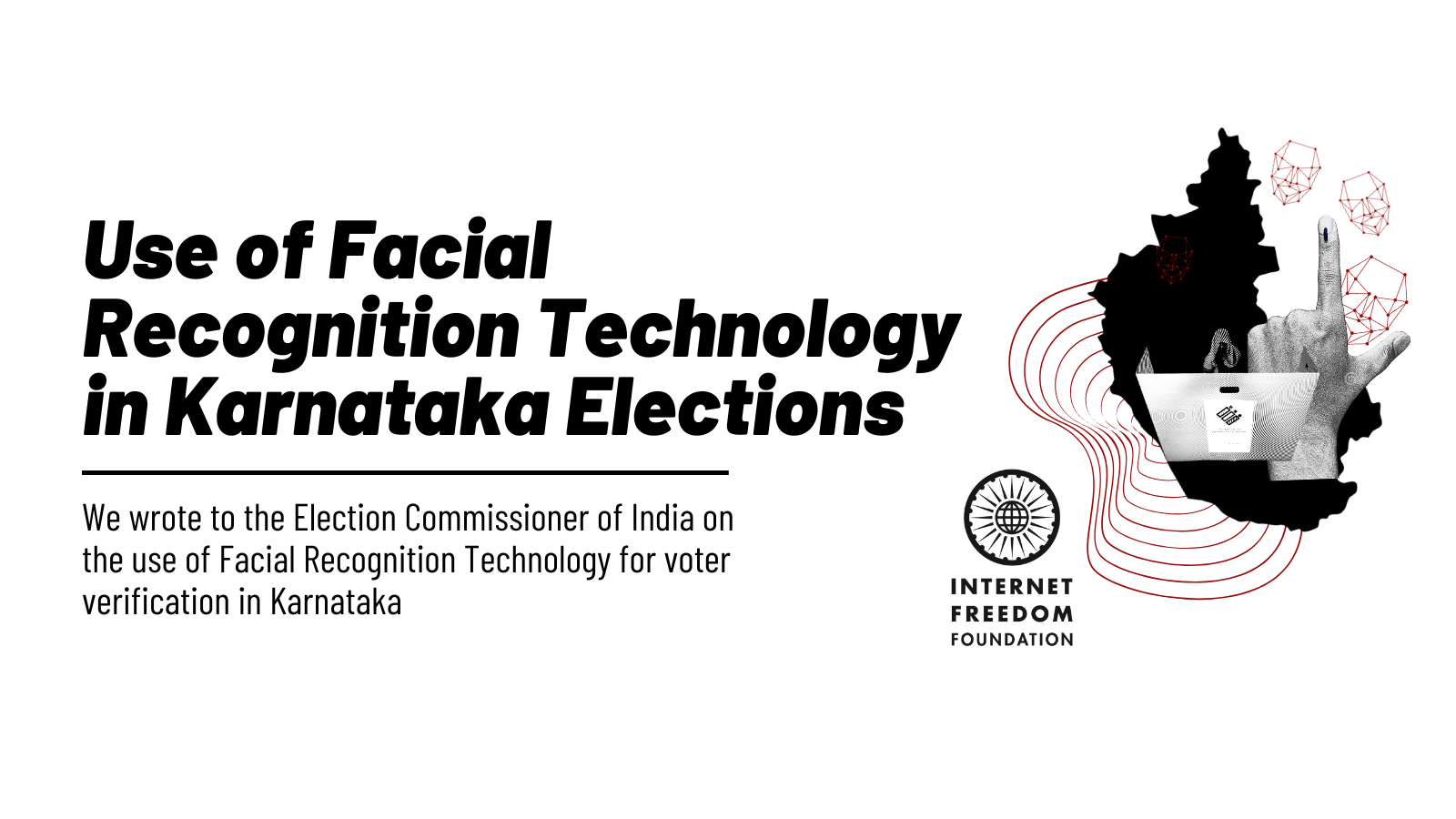
tl;dr
On May 08, 2023, Moneycontrol reported that the Election Commission of India (“ECI”) was planning to pilot the introduction of facial recognition technology (“FRT”) in the polling process by using it in one polling booth in the recent Karnataka state assembly election. We wrote to the Chief Election Commissioner of India (“CEC”) and the Chief Electoral Officer, Karnataka (“CEO, Karnataka”), highlighting our concerns surrounding FRT, and its potentially adverse effects on enfranchisement if implemented on a grand scale within the electoral process. We have also filed two right to information applications (“RTI applications”) to obtain more information about the pilot project.
Why you should care?
India is currently witnessing a rapid proliferation in the use of FRT (view our #ProjectPanoptic tracker here). In the electoral process, however, the incorporation of FRT is especially concerning, since the unchecked collection of voter data can be used to influence voter behaviour undemocratically. FRT also suffers from low accuracy rates and biases across its landscape, opening up possibilities of large-scale disenfranchisement and marginalisation if incorporated permanently in polling processes. The fundamental right to vote - and the right to free and fair elections - is thus endangered by such a pilot, and the project itself needs to be addressed.
Our letter to the CEC and CEO, Karnataka
The aforementioned news report suggests that the system was piloted at one polling station in Bengaluru during the election on May 10, 2023. The article later states that soon after the original report, the ECI clarified that they had taken the project for ‘deliberation’, and not finalised for piloting. As a part of the project, voters at the polling booth chosen for the pilot will need to download a mobile application (‘Chunavana’) and upload personal information, like their Elector’s Photo Identity Card (EPIC) number and mobile number, along with a picture of themselves. At the polling booth, the voter will then undergo facial recognition scanning for verification, passing which they will be cleared to cast their vote.
Like the article, we note the similarity of the system to the Central Government’s DigiYatra Scheme. IFF has previously stated our concerns with the use of widespread facial recognition systems like DigiYatra, including India’s lack of a data protection legal framework. Our letter highlighted the intrusion to individual privacy that is promulgated by unrestricted digital surveillance, especially in the context of the right to privacy established by the Supreme Court in the 2017 judgement of Puttaswamy vs. Union of India.
We also emphasised the likelihood of the widespread incorporation of FRT in voting in India causing large scale disenfranchisement, especially for marginalised sections of the population. It is our recommendation that the ECI cease the implementation of FRT in elections, and conduct a privacy-impact assessment on the implementation of any new technology within the polling process.
IFF has also filed two RTI applications with the ECI on this pilot project, on May 08 and May 10, 2023. The former application requests information on the data collection and privacy policies of the mobile app and FRT system, while the latter requests the ECI to make the pilot project report available to us. As of May 11, 2023, the application requesting the report of the pilot has been transferred to the CEO, Karnataka.
This post has been authored by Policy Intern Ishika Ray Chaudhuri and reviewed by the IFF Policy Team.

